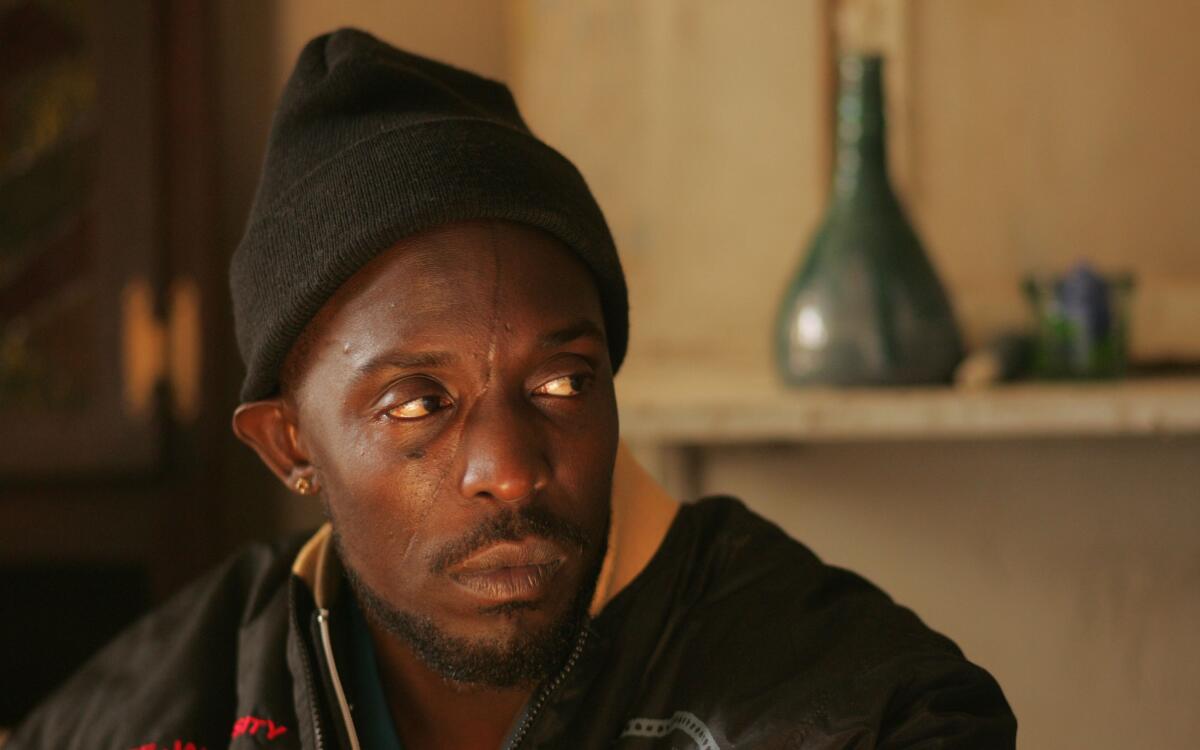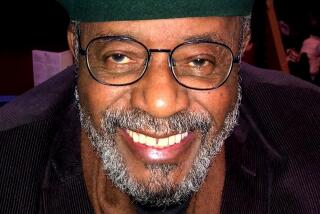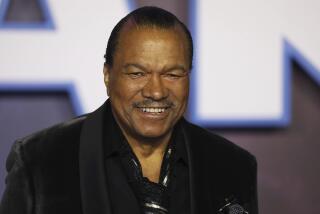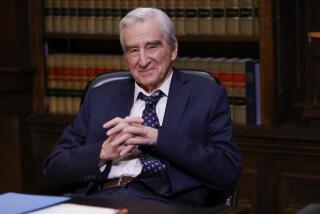Michael K. Williams used Omar on ‘The Wire’ to revive a Black, queer identity

- Share via
What made Michael K. Williams, the actor who was found dead on Monday at 54, such a compelling force on screen was his ability to challenge viewers to see the humanity in a character who struggles to show humanity toward others.
It’s a remarkable gift — the ability to woo an audience into accepting villainous actions as heroic. With each episode of one of his shows, especially “The Wire” from 2002 to 2008, our moral compass was tugged toward Williams’ magnetic portrayals.
Think of Bryan Cranston’s Walter White or Viola Davis’ Annalise Keating. For Williams, the Omar Little character helped turn HBO’s “The Wire” into one of the most iconic shows in television history.
That in and of itself is reason enough to mourn the passing of Williams, as we would any great artist whose work has touched us profoundly. But, of course, that’s only part of Williams’ story.
David Simon, creator of the show, once told me that whenever someone asked him why he made Omar gay, he would respond: Why did we make the other 19 characters straight? It’s a brilliant counterpoint, one that confronts without antagonizing, while touching on the theme of the first LGBTQ equality march on Washington, back in 1979: We are everywhere.
That includes the ‘hood.
We just didn’t talk about it.
But for people to accept the premise that the most feared man in one of Baltimore’s most dangerous neighborhoods was openly gay, the actor portraying him had to first breathe life into an asphyxiated version of Black masculinity. A version being snuffed out in most retellings of Prohibition America and the Harlem Renaissance, which scholar Henry Louis Gates Jr. said was “as gay as it was Black, not that it was exclusively either.”
From Gladys Bentley and Ethel Waters to James Baldwin and Langston Hughes, the contributions of open Black LGBTQ people are present to this day, even though their sexual orientation and gender identities were shoved in the closet decades ago.
Over time, this whittling away of queer visibility filtered the work of Black LGBTQ artists solely through a heterosexual lens. It took something like Hughes’ poem “Mother to Son” and assumed the line “life for me ain’t been no crystal stair” was solely about the impact of racism and not homophobia or a combination of the two.
That’s what made Williams’ work on the show as transformative as it was urgent.
In bringing the character of Omar to life, Williams resurrected aspects of Black queerness that had largely gone missing in Black artistry outside of theater and comedians such as Martin Lawrence and Jamie Foxx doing drag on TV. And while I loved Foxx’s Wanda and Lawrence’s Sheneneh, there is a difference between “laughing with” and “laughing at.” Considering the lack of Black queer visibility in Black spaces, it certainly felt like the latter.
But Williams’ Omar was menacing. A stick-up man with street cred who also had boyfriends. Beautiful boyfriends who would appear naked in bed with him, making it impossible for viewers not to see his sexuality as part of his identity.
Seeing Omar on a hit show, being an out and proud gay Black man living in the Black community, was on par with seeing Will hang out with Grace in their all-white one — an experience that Joe Biden once said contributed to changing attitudes toward gay people. Barack Obama, on the other hand, not only called “The Wire” “one of the best shows of all time,” but also highlighted Omar as his favorite character. This was a big deal. The country learned that the leader of the free world was watching a television show with same-sex love scenes.
That may inspire a shrug today, but considering the president before Obama tried to ban same-sex marriage, this represented a dramatic cultural shift.
This is why Omar, and Williams’ portrayal of him, is so important: After decades of erasure, Black queerness was able to coexist with queer Blackness within the same television character. Just as Black queerness and queer Blackness have always existed in everyday life.
More to Read
A cure for the common opinion
Get thought-provoking perspectives with our weekly newsletter.
You may occasionally receive promotional content from the Los Angeles Times.










